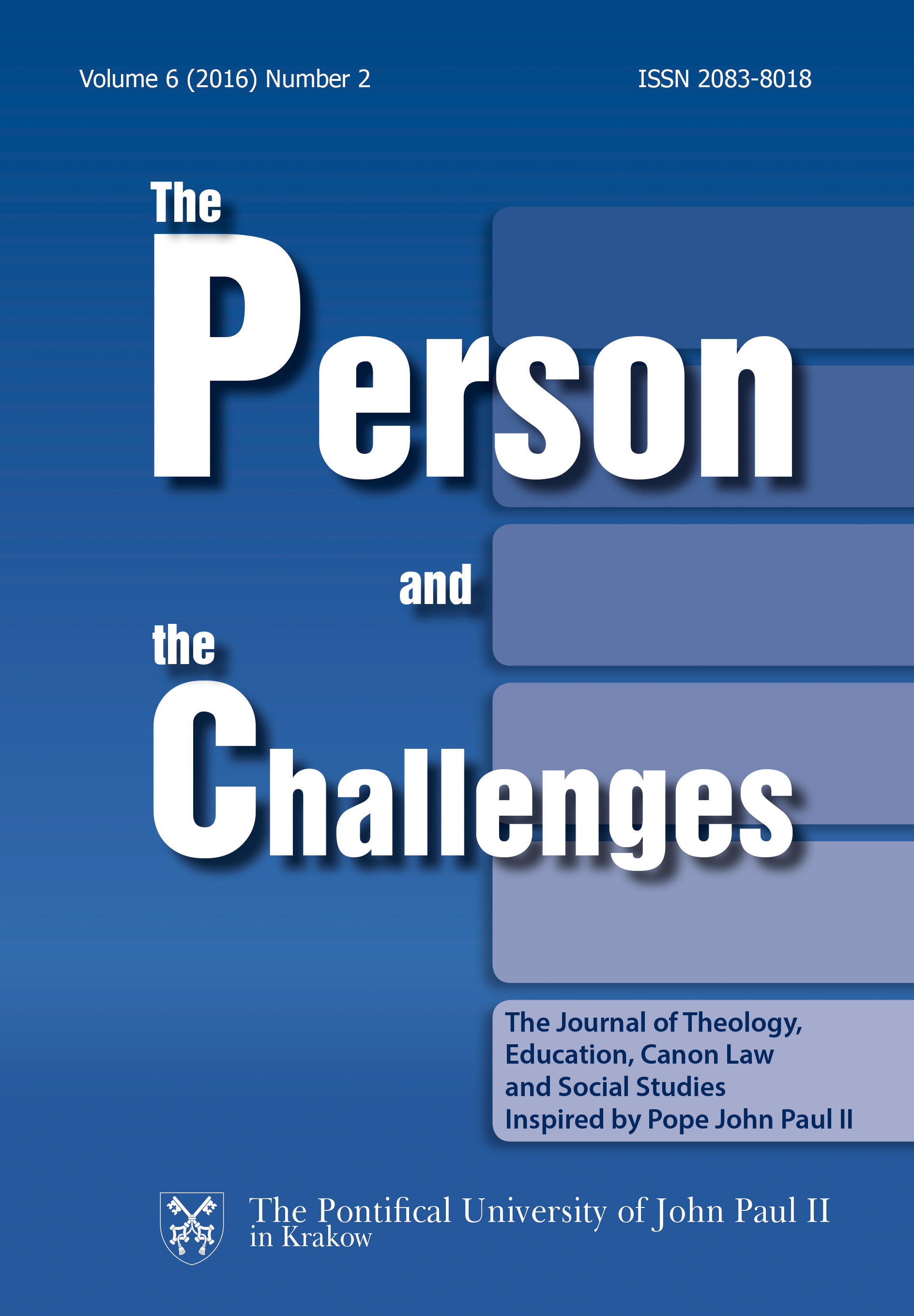Human Dignity in Law – A Case Study of the Polish Legal System
DOI:
https://doi.org/10.15633/pch.1894Słowa kluczowe:
Dignity, international law, Polish Constitution, Universal Declaration of Human Rights, International Covenant on Civil and Political RightsAbstrakt
Human dignity is one of the most fundamental ideas in the entire international human rights system. As from the Universal Declaration of Human Rights, in 1948, the concept of the human dignity become used as a tool to protect the basic needs of humans. The other formal instruments of international human rights also make reference to dignity. Whereas international law widely accepted the inherence of dignity, controversies still arise around the source of the dignity. Polish lawmakers, on the other hand, have no doubt about the fact the concept of dignity comes from natural law. Poland, in her Constitution, refers to the teaching of John Paul II about the source, value and meaning of human dignity. There is no doubt that concept of human dignity, even when it is controversial, is the most widely accepted by all religions and political society in the world.Bibliografia
Baker C., “Dignity in International Human Rights Law”, International Write for Rights Movement (2011).
Carozza P. G., “Human Dignity and Judicial Interpretation of Human Rights: A Reply”, The European Journal of International Law, vol. 19 no. 5.
Chmaj M., Wolności i prawa człowieka w Konstytucji Rzeczypospolitej Polskiej, Warszawa 2008.
Jan Paweł II, List do Sekretarz Generalnej Gertrude Mongella, IV światowej konferencji ONZ poświęconej kobiecie, Watykan, 26 maja 1995 r., http://nauczaniejp2.pl/dokumenty (06.09.2016).
Jan Paweł II, Ecclesia in America, w: Dzieła zebrane, red. P. Ptasznik, t. 2: Adhortacje, Kraków 2006.
McCrudde Ch., Human Dignity and Judicial Interpretation of Human Rights, “Eur J Int Law” (2008) 19 (4), p. 655–724 (doi: 10.1093/ejil/chn043).
Osiatyński W., Human Rights and their Limits, Budapest 2009.
Novak M., Godność człowieka, wolność osoby, „Przegląd Powszechny” (1998) nr 1.
Pope Francis, Address to the European Parliament in Strasbourg, on Nov. 25, 2014, http://www.catholicnewsagency.com/news/pope‑tells‑haggard‑europe‑that‑human‑
dignity‑is‑key‑to‑renewal-89576/ (06.09.2016).
Pabjan T., Some remarks on the conflict between faith and science, “The Person and the Challenges” 6 (2016) 1.
Shleton D., The Oxford Handbook of International Human Rights Law, Oxford 2013.
Trybunał Konstytucyjny, http://trybunal.gov.pl/en (02.09.2016).
Tushnet M., Fleiner T., Saunders C., Routledge Handbook of Constitutional Law, Abingon 2013.
Zientkowski P., i inni, W poszukiwaniu paradygmatu wartości, w: Z problemów bezpieczeństwa: Prawa człowieka, red. T. Jasudowicz i inni, „Zeszyt Naukowy” nr 4/2b/2012, Chojnice.
The Universal Declaration of Human Rights, United Nations General Assembly in Paris on 10 December 1948 General Assembly resolution 217 (III).
Międzynarodowy Pakt Praw Obywatelskich i Politycznych otwarty do podpisu w Nowym Jorku dnia 19 grudnia 1966 r., DZ. U. 1977 nr 38 poz. 167.
The Constitution of the Republic of Poland of 2nd April, 1997, as published DZ. U. nr. 78, poz. 483, as amended; the translation of the Constitution is taken from the official web side of Polish Sejm, http://www.sejm.gov.pl/prawo/konst/angielski/kon1.htm (19.02.2016).
Wyrok Trybunału Konstytucyjnego, z dnia 23 marca 1999 r., sygn. K 2/98, OTK ZU Nr 3(25)/1999, poz. 38.
Wyrok TK z dnia 15 października 2002 r., sygn. akt SK 6/02, OTK ZU Nr 5/A/2002, poz. 65.
Wyrok TK z dnia 4 kwietnia 2001 r., sygn. akt K 11/00, OTK ZU Nr 3(41)/2001, poz. 54.
Wyrok TK z dnia 29 kwietnia 2003 r., sygn. akt SK 24/02, OTK ZU Nr 4/A/2003, poz. 33.
Wyrok TK z dnia 5 marca 2003 r., sygn. akt K 7/01, OTK ZU Nr 3/A/2003, poz. 19.
Wyrok Trybunału Konstytucyjnego z dnia 7 lutego 2005 r. sygn. akt SK 49/03.
Pobrania
Opublikowane
Numer
Dział
Licencja
Prawa autorskie (c) 2016 Magdalena Butrymowicz

Utwór dostępny jest na licencji Creative Commons Uznanie autorstwa 4.0 Międzynarodowe.
Autorzy publikujący w czasopiśmie udzielają jego wydawcy zgody o następującej treści:
- Autor zachowuje autorskie prawa majątkowe do utworu, a jednocześnie udziela wydawcy czasopisma zgody na jego pierwszą publikację w wersji drukowanej i wersji online na licencji Creative Commons Uznanie autorstwa 4.0 Międzynarodowe oraz zgody na wykonywanie opracowań, w tym przekładów.
- Autor ma możliwość udzielania zgody niewyłącznej na opublikowanie utworu w wersji, która ukazała się w czasopiśmie (np. zamieszczenia go w repozytorium instytucjonalnym lub opublikowania w książce), wraz z informacją o jego pierwszej publikacji w czasopiśmie.
- Autor może umieścić swój utwór online (np. w repozytorium instytucjonalnym lub na swojej stronie internetowej) jeszcze przed zgłoszeniem utworu do czasopisma.

